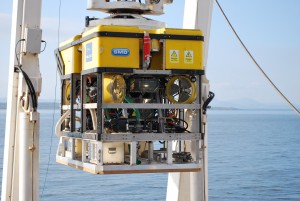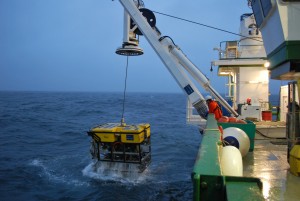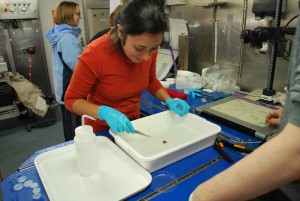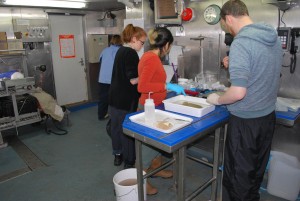The first expedition of the SFI project was conducted from the 25th of May to the 5th of June 2017 on board the Celtic Explorer. You can read our May and June blog posts to the Marine Institue’s blog Scientists@Sea here:
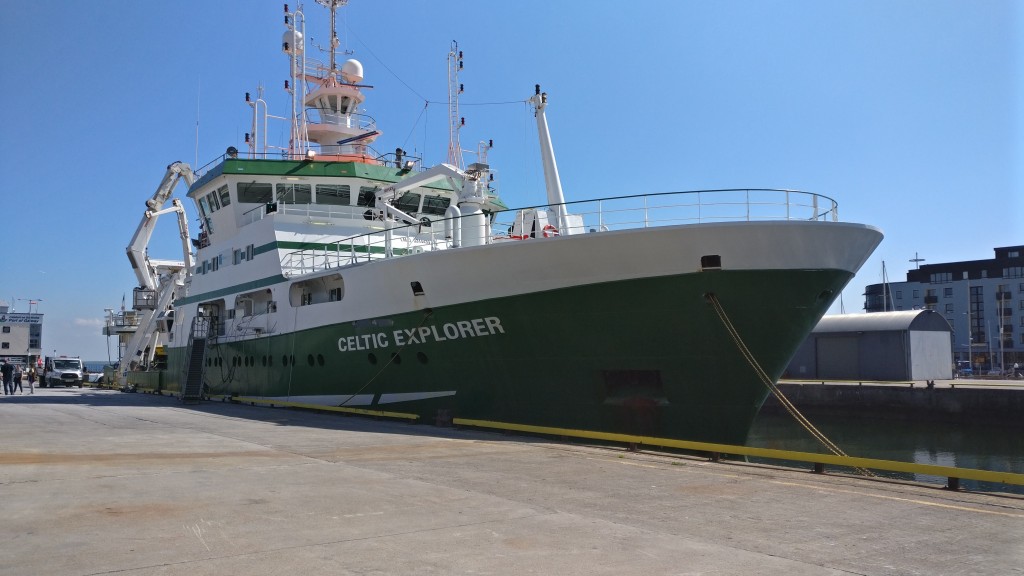
RV Celtic Explorer in Galway port on the day of departure (25/05/2017)
On this cruise, we headed to where the continental shelf suddenly ends, and the depth of the sea floor rapidly increases from around 300 m to > 3000 m, looking at areas already known to be rich in deep-sea corals.
We collected samples of octocorals and sponges to take back to the NUI Galway chemistry labs using the ROV Holland I. Our chemists will extract chemical compounds from all samples back at NUI Galway and we’ll run these chemicals in bioassays to see if they have useful actions against diseases, cancers, bacteria etc. If they do, we’ll figure out their chemical structure to make this knowledge available to the pharma industry.
- ROV Holland I
- ROV Holland I launching from RV Celtic Explorer
- PhD student Raissa Hogan sorting material in the lab
- The team sorting specimens in the wet lab of RV Celtic Explorer
We also had zoologists on board to identify the sponges and corals – but also in the future to analyse all the videos. We’re building mathematical models to predict the likelihood of any given species yielding a novel natural product (based on what we know from previous discoveries and our understanding of the relatedness of various species). Using the small amount of data we have from the videos (given that we can only ever cover a tiny area of the seafloor with our ROV) we use our knowledge of where species do occur, to predict where they are likely to occur. So then we know which species are likely to have exciting chemistry, and where to go looking for them. This improves our future chances of finding new natural products.
Overall the cruise was very successful as over 12 cruise days we have successfully completed 20 ROV dives in order to collect a multitude of deep-sea organisms.
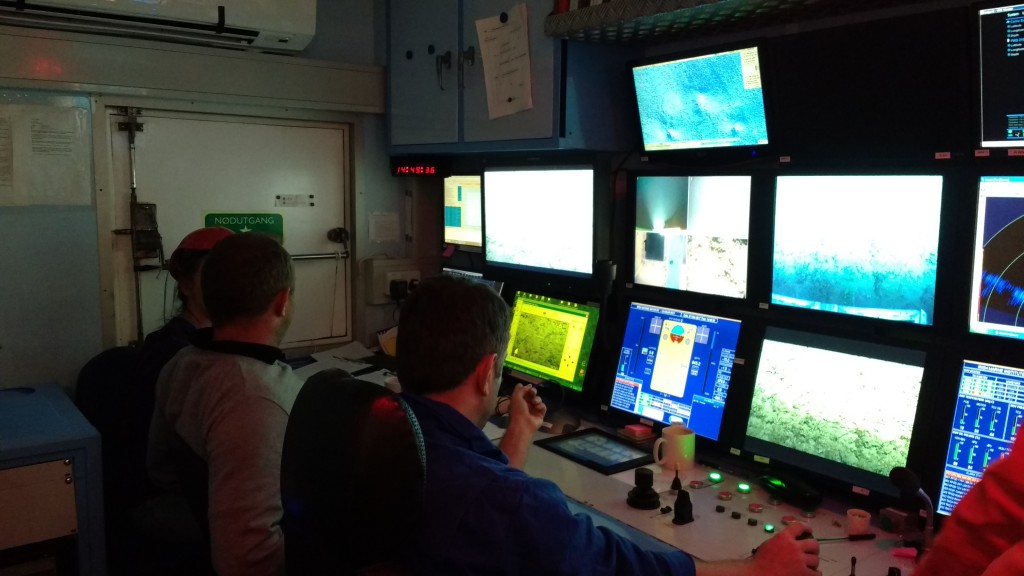
ROV pilots and scientists working in the ROV shak to collect targeted specimens
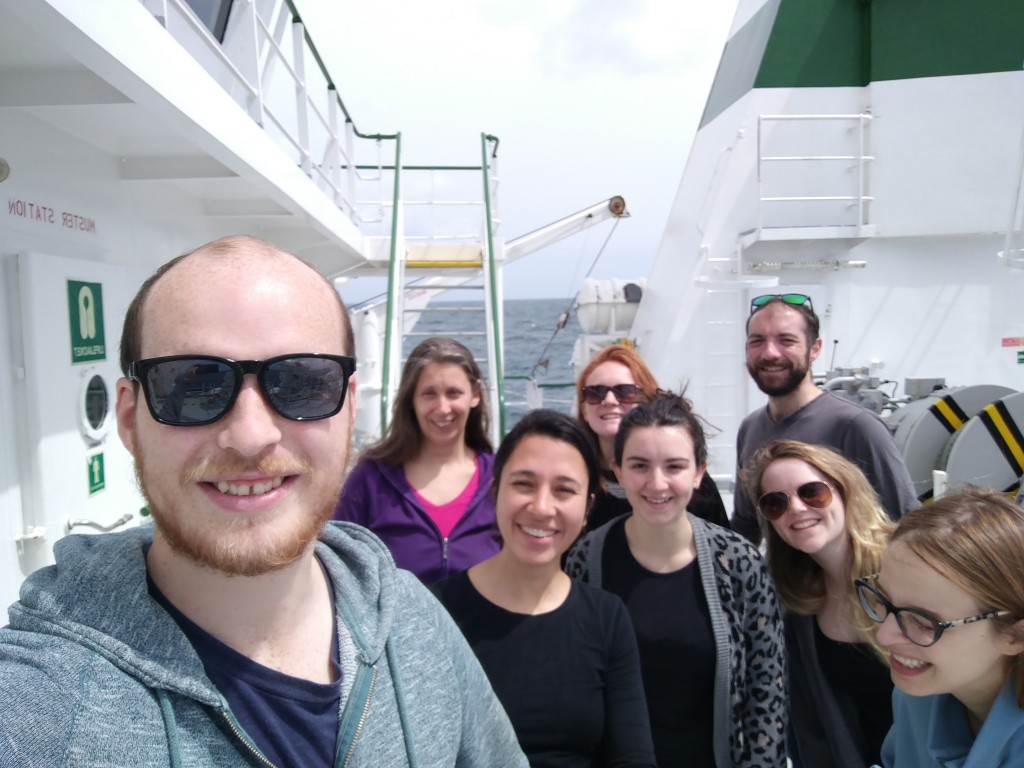
A happy team – From left to right: Declan Morrissey (4th year student), Dr. Louise Allcock, Raissa Hogan (PhD student), Morag Taite (PhD student), Poppy Keogh (3rd year student), Jamie Maxwell (4th year student), Eva Turley (3rd year student), and Dr. Claire Laguionie Marchais
